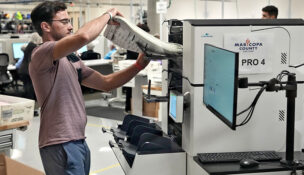Changing political landscape gives Republicans hope
Arizona Capitol Reports Staff//September 29, 2006//[read_meter]
Changing political landscape gives Republicans hope
Arizona Capitol Reports Staff//September 29, 2006//[read_meter]
District debateGOP District 23 candidate John Fillmore and Dem Barbara McGuire debate Sept. 27 in Casa Grande. Legislative District 23 has long been a Democrat stronghold, but the times, as...
No tags for this post.

















